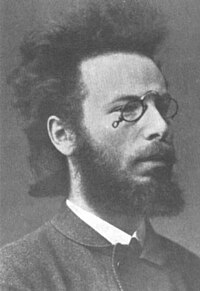Frederick Eckstein: Difference between revisions
rm highly dubious |
Mayerling some details |
||
| Line 4: | Line 4: | ||
'''Friedrich Eckstein''' (February 17, 1861, in [[Perchtoldsdorf]], [[Lower Austria]] - November 10, 1939, in Vienna) was an Austrian [[polymath]], [[theosophist]] and a friend and temporary co-worker of [[Sigmund Freud]]. |
'''Friedrich Eckstein''' (February 17, 1861, in [[Perchtoldsdorf]], [[Lower Austria]] - November 10, 1939, in Vienna) was an Austrian [[polymath]], [[theosophist]] and a friend and temporary co-worker of [[Sigmund Freud]]. |
||
Also the husband of fellow theosophist and writer [[Bertha Diener]], Eckstein's penchant for occultism first became evident as a member of a [[vegetarian]] group which discussed the doctrines of [[Pythagorus]] and the [[Neoplatonism|Neo-Platonists]] in Vienna at the end of the 1870s. His esoteric interests later extended to German and Spanish mysticism, the legends surrounding the [[Templars]] and the [[freemasons]], Wagnerian mythology and oriental religions. In the week after the tragedy at [[Mayerling]], he and his friend, the composer [[Anton Bruckner]] (for whom he also served as private secretary) |
Also the husband of fellow theosophist and writer [[Bertha Diener]], Eckstein's penchant for occultism first became evident as a member of a [[vegetarian]] group which discussed the doctrines of [[Pythagorus]] and the [[Neoplatonism|Neo-Platonists]] in Vienna at the end of the 1870s. His esoteric interests later extended to German and Spanish mysticism, the legends surrounding the [[Templars]] and the [[freemasons]], Wagnerian mythology and oriental religions. |
||
In 1886 , in the week after the tragedy at [[Mayerling]] , in which [[Crown Prince Rudolf of Austria]], and his mistress were found dead in mysterious circumstances, he and his friend, the composer [[Anton Bruckner]] (for whom he also served as private secretary) traveled to the monastery of [[Stift Heiligenkreuz]] to ask the abbot there for details of what happened.<ref>Nicholas Goodrick-Clarke ''The Occult Roots of Nazism: Secret Aryan Cults and Their Influence on Nazi Ideology'', NYU Press, 1993</ref> |
|||
== References == |
== References == |
||
<div style="font-size: 95%"> |
<div style="font-size: 95%"> |
||
Revision as of 22:33, 22 June 2012
You can help expand this article with text translated from the corresponding article in German. (December 2009) Click [show] for important translation instructions.
|
For the German philologist and educator, see Friedrich August Eckstein

Friedrich Eckstein (February 17, 1861, in Perchtoldsdorf, Lower Austria - November 10, 1939, in Vienna) was an Austrian polymath, theosophist and a friend and temporary co-worker of Sigmund Freud.
Also the husband of fellow theosophist and writer Bertha Diener, Eckstein's penchant for occultism first became evident as a member of a vegetarian group which discussed the doctrines of Pythagorus and the Neo-Platonists in Vienna at the end of the 1870s. His esoteric interests later extended to German and Spanish mysticism, the legends surrounding the Templars and the freemasons, Wagnerian mythology and oriental religions. In 1886 , in the week after the tragedy at Mayerling , in which Crown Prince Rudolf of Austria, and his mistress were found dead in mysterious circumstances, he and his friend, the composer Anton Bruckner (for whom he also served as private secretary) traveled to the monastery of Stift Heiligenkreuz to ask the abbot there for details of what happened.[1]
References
- ^ Nicholas Goodrick-Clarke The Occult Roots of Nazism: Secret Aryan Cults and Their Influence on Nazi Ideology, NYU Press, 1993
